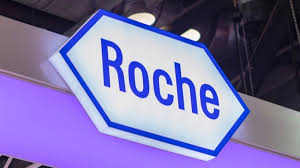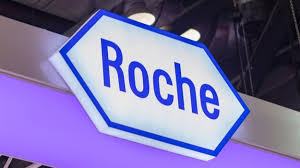
An antibody test for the detection of whether people were every infected with the coronavirus from Roche Holding AG was given emergency use approval from the United States Food and Drug Administration (FDA).
Such blood tests are currently in demand from governments, businesses and individuals which can help them to know more about who could have already had the disease and learn more about who could have already developed some form of immunity. It could also help to create potential strategies for ending lockdowns that have shattered global economies.
Previously, pledges to make its antibody test available by early May have been made by the Swiss drug manufacturer. The company had also promised to boost production by June to “high double-digit millions” per month.
The antibody test form Roche, called Elecsys Anti-SARS-CoV-2, has a specificity rate of about 99.8% and sensitivity rate of 100%, the company claimed. The Basel-based company also manufactures separate molecular tests to identify people with active Covid-19 infections.
The specificity and sensitivity rates are useful for determining whether an individual had been exposed to COVID-19 – the pneumonia like disease caused by the novel coronavirus, as well as whether any antibody to against the virus has developed within an individual.
Tests to identify antibodies that develop inside the body after someone comes into contact with the virus have also been developed by other companies including US-based Abbott Laboratories, Becton Dickinson and Co and Italy’s DiaSorin.
US emergency authorization for their tests was recently given to Diasorin and Abbott.
Getting a better understanding of Covid-19 as well as identifying those who were infected by the virus but showed only mild symptoms, or none at all is the aim of governments and authorities from using the tests.
A mistaken conclusion that someone has immunity could happen because of an erroneous false-positive result.
Roche’s chief executive, Severin Schwan, had earlier said that the company had looked into some existing products for reliability before rejecting them while developing its test.
About 100 tests were considered by the company while chalking out this antibody test, which included finger-prick assays with ability to deliver quick results, Schwan said.
While declining to name the specific rival tests it had studies, the company said that it had not studied tests from any of the established testing companies.
The antibody test of Roche helps to determine the presence of antibodies, which includes the immunoglobulin G (IgG), which stays within the human body for a long period of time which points out to the possibility of development of immunity. The antibody test is a blood test with blood drawn intravenously.
According to reports, a large number of distributors who possess no background or established competency and credibility in medical testing have also entered the fray with experienced companies with the rise of demand for blood antibody tests.
(Source:www.bloomberg.com)
Such blood tests are currently in demand from governments, businesses and individuals which can help them to know more about who could have already had the disease and learn more about who could have already developed some form of immunity. It could also help to create potential strategies for ending lockdowns that have shattered global economies.
Previously, pledges to make its antibody test available by early May have been made by the Swiss drug manufacturer. The company had also promised to boost production by June to “high double-digit millions” per month.
The antibody test form Roche, called Elecsys Anti-SARS-CoV-2, has a specificity rate of about 99.8% and sensitivity rate of 100%, the company claimed. The Basel-based company also manufactures separate molecular tests to identify people with active Covid-19 infections.
The specificity and sensitivity rates are useful for determining whether an individual had been exposed to COVID-19 – the pneumonia like disease caused by the novel coronavirus, as well as whether any antibody to against the virus has developed within an individual.
Tests to identify antibodies that develop inside the body after someone comes into contact with the virus have also been developed by other companies including US-based Abbott Laboratories, Becton Dickinson and Co and Italy’s DiaSorin.
US emergency authorization for their tests was recently given to Diasorin and Abbott.
Getting a better understanding of Covid-19 as well as identifying those who were infected by the virus but showed only mild symptoms, or none at all is the aim of governments and authorities from using the tests.
A mistaken conclusion that someone has immunity could happen because of an erroneous false-positive result.
Roche’s chief executive, Severin Schwan, had earlier said that the company had looked into some existing products for reliability before rejecting them while developing its test.
About 100 tests were considered by the company while chalking out this antibody test, which included finger-prick assays with ability to deliver quick results, Schwan said.
While declining to name the specific rival tests it had studies, the company said that it had not studied tests from any of the established testing companies.
The antibody test of Roche helps to determine the presence of antibodies, which includes the immunoglobulin G (IgG), which stays within the human body for a long period of time which points out to the possibility of development of immunity. The antibody test is a blood test with blood drawn intravenously.
According to reports, a large number of distributors who possess no background or established competency and credibility in medical testing have also entered the fray with experienced companies with the rise of demand for blood antibody tests.
(Source:www.bloomberg.com)














